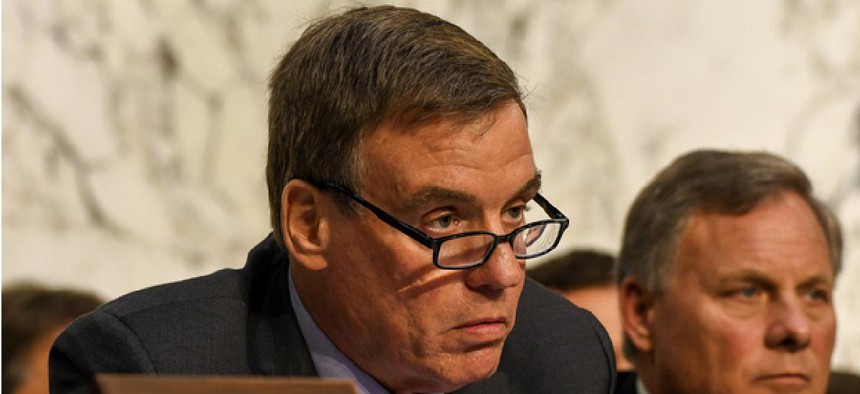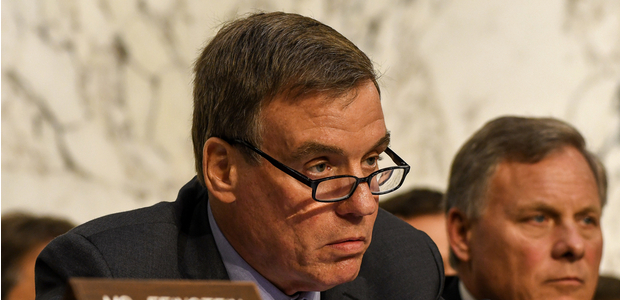Warner seeks fix for clearance backlog

Virginia Democrat Sen. Mark Warner proposed new cost transparency and processing goals to reform the federal security clearance process.

The next defense spending bill could include reforms designed to chip away at the federal government's massive clearance backlog.
Sen. Mark Warner (D-Va.), vice chairman of the Senate Select Committee on Intelligence, introduced amendments to the Senate's version of the 2019 National Defense Authorization Act that aim to solve the near 700,000-person clearance backlog through budget transparency and goal setting.
Warner's legislation would require departments and agencies to disclose the costs of background investigations and reinvestigations, screening mechanisms and the average cost per person.
The proposal also states that by December 2021, 90 percent of all security clearance determinations should be issued in less than 30 days for the secret level and 90 days for top secret. Reciprocity of security clearances at the same level for other federal departments and agencies would need to be recognized in less than two weeks. Additionally, the provision says periodic reinvestigations are not to be required for more than 10 percent of the clearance-holding population.
These are "much-needed fixes to streamline and modernize our outdated security clearance process," Warner said in a statement. "I look forward to working with my colleagues to ensure we provide the proper resources and support our military needs in this year's defense budget."
At a Senate hearing in March, Warner expressed deep frustration with the clearance backlog. He told witnesses that he wants to "completely rethink" the process, adding that it was not designed with the current threat landscape in mind in terms of risks posed by contractors and by insiders leaking to adversaries or the press.
Warner's amendments come ahead of promised changes to the clearance process, which were previewed by Bill Evanina, director of the National Counterintelligence and Security Center, in April. Changes include new guidance designed to streamline the award of an initial or interim clearance and the adoption of continuous monitoring technologies to evaluate risk of clearance holders in real time or near real time.



